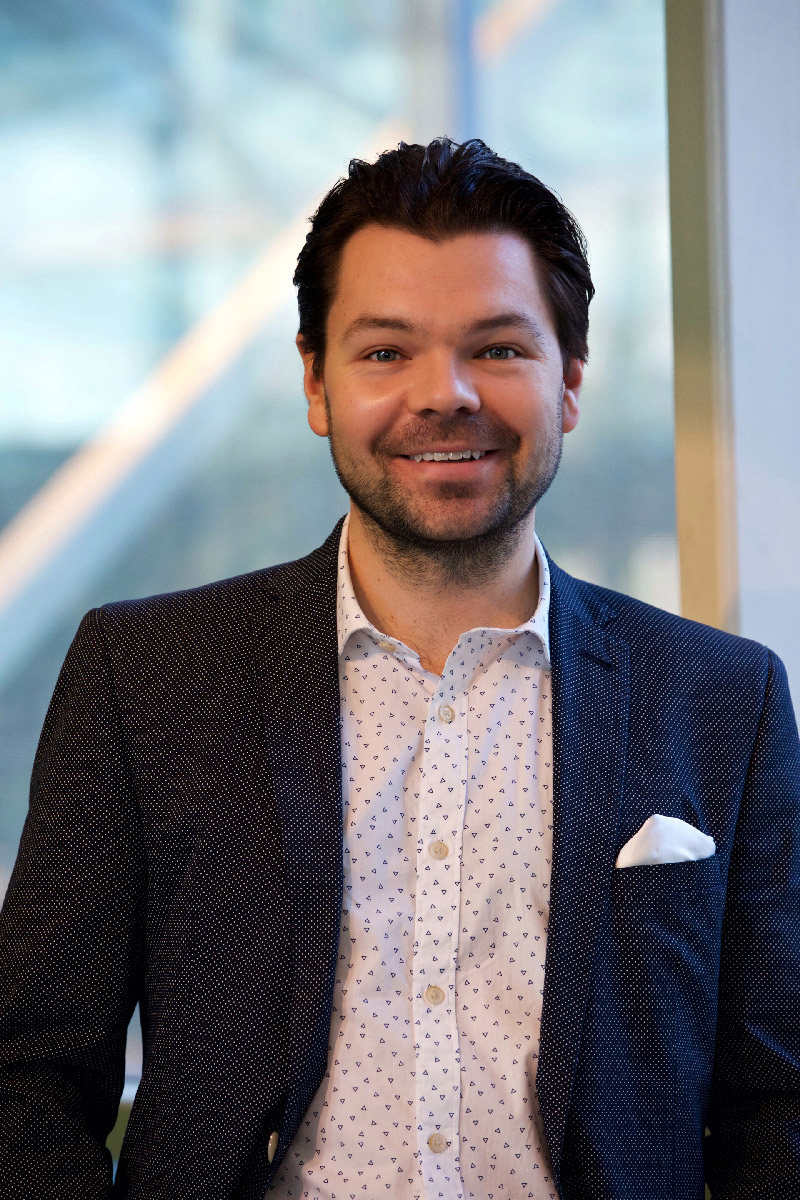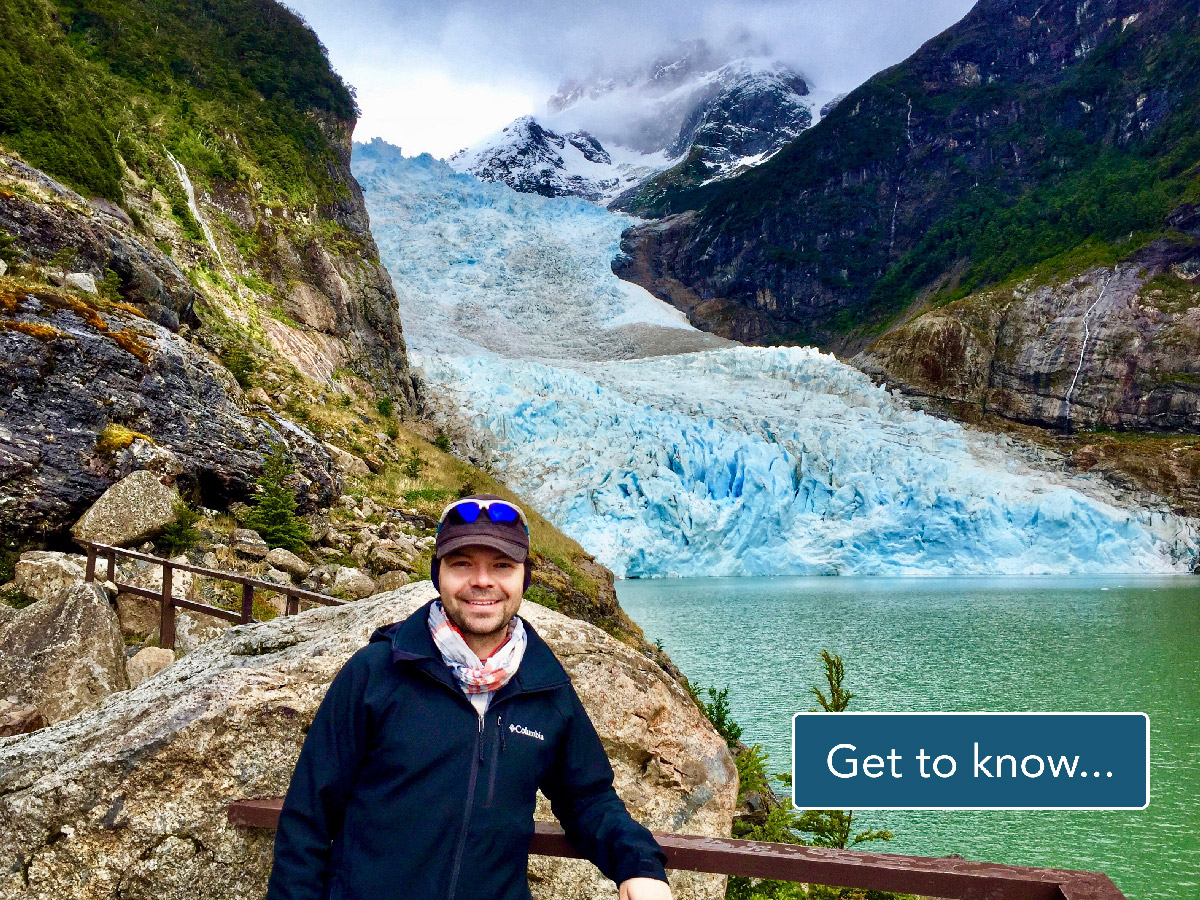For 18 years Matthew has helped clients and employers gain a competitive edge in business. He’s worked with dozens of organizations – from startups to Fortune 100 companies – and has directly founded / co-founded three companies. Matthew’s academic background includes law, business and finance, while his real-world experience includes business development and marketing. In this exclusive interview with Manning Global, Matthew tells us what it’s like to start a business and build a brand, and offers some essential advice for entrepreneurs looking to strike out in the marketplace…
Hi Matthew, let’s dive straight in. Health and wealth… are the two mutually exclusive?
I used to think so, but in fact, it’s quite the opposite. I’ve always been somewhat of a health nut, and being married to a physician has only compounded my interest in optimising my health and performance. The more I’ve studied on the topic, the more I’ve come to realise how vital a role healthy habits play in building a successful career. Lack of sleep, for example, is something many entrepreneurs dismiss, and often wear like a badge of honour, touting how they’re ‘too busy to sleep,’ and that getting more sleep means less time to be productive. If they only knew how much a disservice they were doing to themselves. Countless neurological studies have shown getting a full night’s sleep makes us more productive, not less, and in fact, increases our brain function exponentially.
You started your first company aged 11, that’s quite some achievement, please could you tell us how you started your journey on the career ladder…
It was February 1993, the Sony Discman was taking the world by storm and I desperately wanted to buy one. At the time, I couldn’t legally get a job until age 14, so I decided to start shovelling driveways during the winter for $20 each. Business was OK, but I often found myself being beaten to the job by other kids with the same idea – it took roughly 30 minutes to shovel one driveway, by the time I had finished two or three, most remaining clients had either done it themselves or hired another kid from the block.
As winter came to an end, I thought long and hard all summer how I could grow my business the following year. Finally, I came up with a solution…
Fast-forward to September. With winter only a few months away I spent one Saturday afternoon going door-to-door in my neighbourhood. With the help of my father (and our first ever Windows computer) I typed a contract for each client which ensured their exclusivity for the upcoming season. In exchange, I guaranteed their driveway to be cleared no later than 9am. I charged clients a flat fee of $250 ($150 due upon signing, and $100 due in February should they be happy with my service.) Once my exclusivity agreements were in place, it was time to prey for a mild winter. Unfortunately, Mother Nature had different plans. As early as November the snow began to fall. Our first big storm of the season rolled-in and I awoke to find our street covered in nearly one foot of snow! I laced up my boots and headed out with my shovel to start working on my first driveway. As the other kids on the block took notice, they quickly followed suit. Fortunately for me, as the other kids began knocking on doors, they quickly realised there was no business to be had since I locked all the neighbours into exclusivity agreements two months prior. I was now in a position to offer the other kids an opportunity to work for me at a wage of $10 per driveway. I could now sit back and manage the other kids as they fulfilled the work of my various snow-shovelling agreements. The best part – I got my Discman!
Great story! What made you switch from company owner to advisor for startups at the age of 28?
Since a young age, I’ve always had the entrepreneurial itch. If I’m not running my own venture, I greatly enjoy being involved with other entrepreneurs in some capacity, whether it’s advising or investing in startups.
At the age of 27, I was living in Toronto. One weekend, while out with friends, I met my (now) wife who was in town in Calgary. We immediately hit it off and began a long distance relationship which proceeded to span the following year.
By age 28, and with our coffee company successfully turning a profit (more on that later), my business partner and I had an opportunity to exit the company, allowing me the freedom to move out west and be closer to my wife. Not to say I’ll never go back to being an owner, but right now I’m waiting for the next big idea which catches my interest. If it’s something I’m passionate about I have no issue jumping back behind the wheel as founder or co-founder, but right now I’m enjoying the action from the sidelines.

In your experience what are the three key attributes every entrepreneur should have if they want to succeed in business?
First off, be all-in or not in at all. There’s no in-between. Second, be incredibly open-minded and realistic. If your vision has yet to significantly progress after a year of giving 110% honest effort, don’t keep throwing good money after bad – either adjust the business model or toss in the towel. There is no shame in defeat as long as you take the lessons you learned and apply them to your next venture. Third and finally, if your vision does take off, realise your biggest hurdle and blindspot will likely become your ego. I’ve cut ties with numerous companies over the years whose founders and managers began falsely assuming they were doing everything correctly, and instead, blamed staff and market forces for continued declines in revenue. The ability to say the words ‘I don’t know’ and ‘help’ not only build credibility among founders, but make for greater transparency, and ultimately, enthusiasm among staff members willing to help save the sinking ship. It’s entirely unrealistic to expect founders and managers to have all the answers, and by checking the ego at the door, we garner far more respect from everyone around us.
Sales, marketing, advisor, blogger… that’s a lot of roles and skills, which are your favourites?
It certainly sounds like a lot, but for me, there’s so much overlap between my roles each one funnels down to the same ultimate purpose. I’ve always been fascinated with how the human mind works, and why people do what they do. In University, I minored in psychology, so naturally, marketing captured my attention. Combined with my entrepreneurial itch and love of startups, advising and sales go hand-in-hand. Blogging, however, only came to the forefront in the past few years. I discovered a love for writing and wanted to help others by sharing my experience, so I started my blog at GRG Collective to share my knowledge on sales, marketing and business in general.
What’s the most important aspect of your role as an advisor?
Most startups consist of a very small team, usually 2-5 people, and sometimes just a single founder alone. Since I work primarily with technology startups, typically the founding team is purely technical (i.e. app developers and coders). They usually don’t have anyone on their staff with significant experience in sales and marketing. As a result, they may have a great product, but struggle to build an effective marketing strategy and successfully grow their monthly average users before burning through their capital. For me, the most crucial aspect as an advisor is filling this gap in their sales and marketing strategy. When runways are short and burn rates are high, the first few months in the lifecycle of a startup are critically important to future success.
You’ve founded / co-founded three companies: what was the key to your success?
For me, the key to success has always been getting an MVP (minimum viable product) out the door early. I see so many entrepreneurs obsessed with perfection, delaying their product release time-and-time again because, in their mind, it’s not yet ‘perfect’. Believe me, I’m a Type-A perfectionist, and this continues to be one of the hardest obstacles for me to overcome, but in business, perfection doesn’t exist. The most important thing any new company can do is dive-in and make adjustments along the way. For example, when my old business partner and I started our coffee company, we didn’t market-test 35 different styles of coffee beans. We picked three that we liked, and started production. The market quickly told us the light roast wasn’t overly popular, so we adjusted the type of bean which allowed us to optimise our product and drive more sales. We would never have gained this valuable market insight, however, if it weren’t for the fact that we merely jumped-in headfirst and started serving coffee to customers. Had we spent months testing the plethora of available bean options, it would have only led to decision fatigue as we toiled to pick a winning bean – consumer taste preferences are endless! Instead, we chose three bean styles and focused on perfecting the roasting process to match the taste profiles of the customers who liked them – those were our niche target customers; everyone else didn’t matter.
What inspired you to become an entrepreneur?
Everyone in my family has an exceptionally strong work ethic. It’s something which was instilled in all of us at a very young age by my grandfather. He taught us: if you start a job you better well finish it, and finish it right! As I got older and wanted to earn money, it was my father who introduced me to the art of being an entrepreneur. Unlike many of my friends, I didn’t have the luxury of an allowance. So, if I wanted to make money, my father suggested I go door-to-door and offer to help people around their house with various odd jobs. My parents taught me the world is an open marketplace in which anyone can start a business and begin making money. You just need the drive to stand up and get moving.
Most importantly, my father taught me the realities of being an entrepreneur. As I expanded my snow shovelling business at the age of 13, I wanted to invest in a snowblower to increase my output, but only had enough money to cover 50% of the cost. My father could have bought the snowblower outright, but instead, he offered to loan me the other 50% with payment terms and interest, just like a bank in the real world. For the next two winters, I paid back my loan with interest – an invaluable, early lesson on the realities of life and business.
What are your thoughts on artificial intelligence and how it will affect people’s careers going forward?
This is a tricky topic, as many people are scared of one day losing their job to a robot. However, I think we need to look at AI technology not as a threat which makes humans obsolete, but rather, as a tool to empower humans and make us more effective. There will always be a need for humans in the workplace, however, as technology evolves so will the type of careers. Take the newspaper and magazine industry for example. Print media has considerably shrunk over the past decade as a result of consumers moving to digital. However, most companies now hire one or more social media managers to help manage all the digital content – a profession which didn’t exist ten years ago. As new technology develops, so too will the roles required to support it.
What is your one piece of advice to a job seeker who is having trouble securing an interview, let alone a new job?
Persistence and follow-up. As the adage goes, ‘The squeaky wheel gets the grease.’ I’ve personally heard of organizations who will intentionally not call or follow-up with applicants as a test to see if the candidate will take the initiative to call back and check the status of their application.
Speaking of jobs, what was your dream role as a child?
As a Canadian kid who grew up playing hockey on the outdoor rink, I always dreamed of being an NHL hockey player. Unfortunately, I didn’t have good enough hands to put the puck in the net, so when I was 14 years old, I transitioned to officiating. I was incredibly fortunate to have spent 15 years moving up the ladder, ultimately officiating semi-professional hockey and a National Championship. I got to share the ice with many of today’s NHL superstars, and it was an experience I’ll never forget! Indeed, the lessons and principles I learned throughout my career as a hockey official have been invaluable, and I carry them with me throughout all aspects of life – especially the business world. As a colleague of mine once said:
‘You don’t know pressure until you’ve stood in the middle of a sold-out arena, filled with screaming fans and NHL superstars, on national TV, all expecting you to make the correct decision in the blink of an eye without any slow-motion replay or multiple angles; where no matter the outcome 50% of people will disagree. All while skating up and down the ice in the fastest game on earth for 60 minutes without any breaks.’
I recently decided to document my officiating journey and outline the 19 Fundamental Life Principles I learned along the way. The complete story can be read here.

Which professional do you look up to the most?
Without a doubt, my wife. She is an incredibly accomplished, highly-specialised physician in the top 1% of her field. Every time I feel stressed about the work I’m doing, I need only ask how her day went and everything gets put into perspective. On a weekly basis, she’ll diagnose numerous terminal cancers in patients younger than I. More than anything, she’s opened my eyes to the shortness and fragility of life, and how important it is to pursue our dreams during our short time on this earth, because tomorrow, everything can change.
What are your hobbies outside of work?
Living in Calgary, Canada, we’re so happy to have the Rocky Mountains in our backyard. My wife and I love it, whether skiing during the winter or hiking in the summer. We’re also avid adventure travellers and strive to plan three big trips each year. Oh, and music is also a major pastime of mine. A few years ago – with the help of Youtube videos – I taught myself basic guitar, which has quickly grown into one of my favourite hobbies!
If you could have one superpower, what would it be?
If I somehow had the knowledge and power to build one, those medical healing pods from the movie Elysium are pretty fantastic!
Finally, what is your life motto?
You can always make money but you can never get your time back, so when in doubt, always choose experiences over possessions. I guarantee there’s never been a person in human history who laid on their deathbed and wished to trade the memory of a great night out with friends, or a trip with their significant other, in exchange for the cash it cost them to do so.


